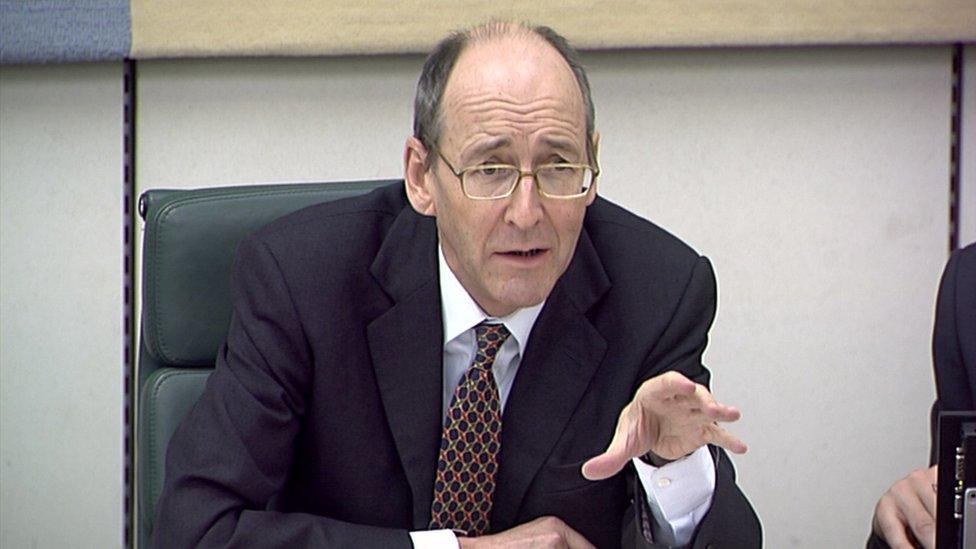MP with committee clout
- Published
- comments

If there is any one MP who has dramatised the increased clout of the Commons select committee system, it is Andrew Tyrie - who announced today he is quitting Parliament at the election.
A flinty, austere, exacting figure, Tyrie has been chair of both the Treasury select committee since 2010, but probably reached the zenith of his influence leading the Parliamentary Commission on Banking Standards, external, which helped shape the post financial crisis framework for the banking system, pushing the government rather further than it wanted to go, in the process.
Set up in 2012, in the wake of the LIBOR interest-rate-fixing scandal, the Commission yomped through a prodigious amount of policy work at a gruelling pace.
Its vast reports had huge leverage over the post-crisis banking legislation, not least because the authors sat in both the Lords and Commons - and those in the Lords, including the former Chancellor Lord Lawson, and the Archbishop of Canterbury, Justin Welby, were influential voices in debates on banking legislation, at a time when those issues were politically radioactive
By the end of its life, relations on the Commission had frayed to the point that members were briefing against each other in pretty venomous terms.
Despite that, the exercise was so influential that it may be a long time before another government creates such an effective whip for its own back - and ministers certainly did not fancy setting up a second Parliamentary Commission, this time to review the future of the Civil Service, and the proposal was eventually fought to a standstill.
Legacy of stronger committees
It is no coincidence that Tyrie's statement announcing his departure noted that "stronger committees now demand better explanations for the decisions made by ministers, regulators, and quangos than hitherto."
And as chair of the super-committee of select committee chairs, the Commons Liaison Committee, he worked hard to underpin the new status and powers of the select committee system.
He also tried to bring in a more exacting interrogation of the prime minister in the Liaison Committee's termly hearings with the PM, once provoking an exasperated David Cameron to shoot back at him: "You don't know what you're talking about" - as he probed the UK's involvement in the Syrian civil war.
In a similar vein, Tyrie also led the all party parliamentary group on Rendition, which pursued evidence of UK complicity in the Bush administration's seizure of terrorist suspects.
Never a minister, and only briefly a shadow minister, Tyrie arguably made his biggest mark on political history as a special advisor to Chancellor Norman Lamont - he had been drafted in on a temporary basis to help out at the Treasury, in the early months of John Major's premiership, and one of his final task was to recommend a successor.
And his choice, on the basis that what was needed was less a policy advisor and more a spin doctor, was a bright young chap named David Cameron.
The rest is history.